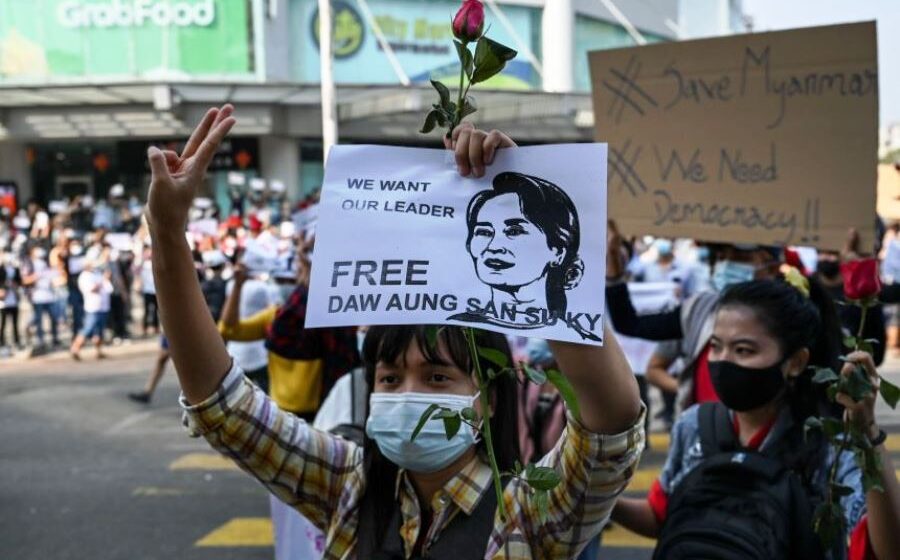Thousands of protesters overcame a post-coup internet blackout as they took to the streets of the largest city in Myanmar for a second consecutive day on Sunday, demanding the release of deposed civilian leader Aung San Suu Kyi.
The crowd on Sunday mostly consisted of young people and appeared to be significantly larger and better organized than Saturday’s protest. Public participation also looked to be growing, according to witnesses. Reuters news service said tens of thousands were in the streets.
Protesters held banners and signs with Suu Kyi’s image, some reading “We want our leader.” Suu Kyi and other democratically-elected lawmakers were detained by the military in pre-dawn raids Monday.
Many in the crowd gave the three-fingered salute — a reference to the Hunger Games movies and popular symbol of recent pro-democracy protests in neighboring Thailand that have since been adopted in Myanmar.
Protesters on Sunday have been marching around the Yangon University area, changing directions to avoid roadblocks and any confrontations with police. A witness has seen several police trucks in the area.
Resistance to the coup had initially proved limited, due in part to widespread communications difficulties, as well as fears of a further crackdown.
Internet monitoring service NetBlocks said Saturday that the country was in the midst of a second “national-scale” internet blackout as the military attempted to secure its grip on power.
According to NetBlocks, real-time network data showed connectivity had fallen to 16% of ordinary levels and users had reported difficultly getting online.
The Myanmar Ministry of Transport and Communications (MoTC) ordered the nationwide shutdown of the data network on Saturday, according to Norwegian telecommunications company Telenor Group, which runs Telenor Myanmar.
The group, writing on Twitter, said the ministry cited “Myanmar’s Telecommunication Law, and references circulation of fake news, stability of the nation and interest of the public as basis for the order.”
The fall in connectivity follows moves to block access to social media platforms Facebook, Instagram and Twitter, as well as a number of prominent local news outlets.
Communication between protesters Sunday was largely through SMS texts, phone calls, and word of mouth, according to a witness in Yangon. On Saturday, crowds announced where to gather Sunday, resulting in apparently improved organization, the witness said.
Members of the Student Union, Labour Union, and Suu Kyi’s National League for Democracy Party (NLD) were expected to join the protest throughout Sunday.



